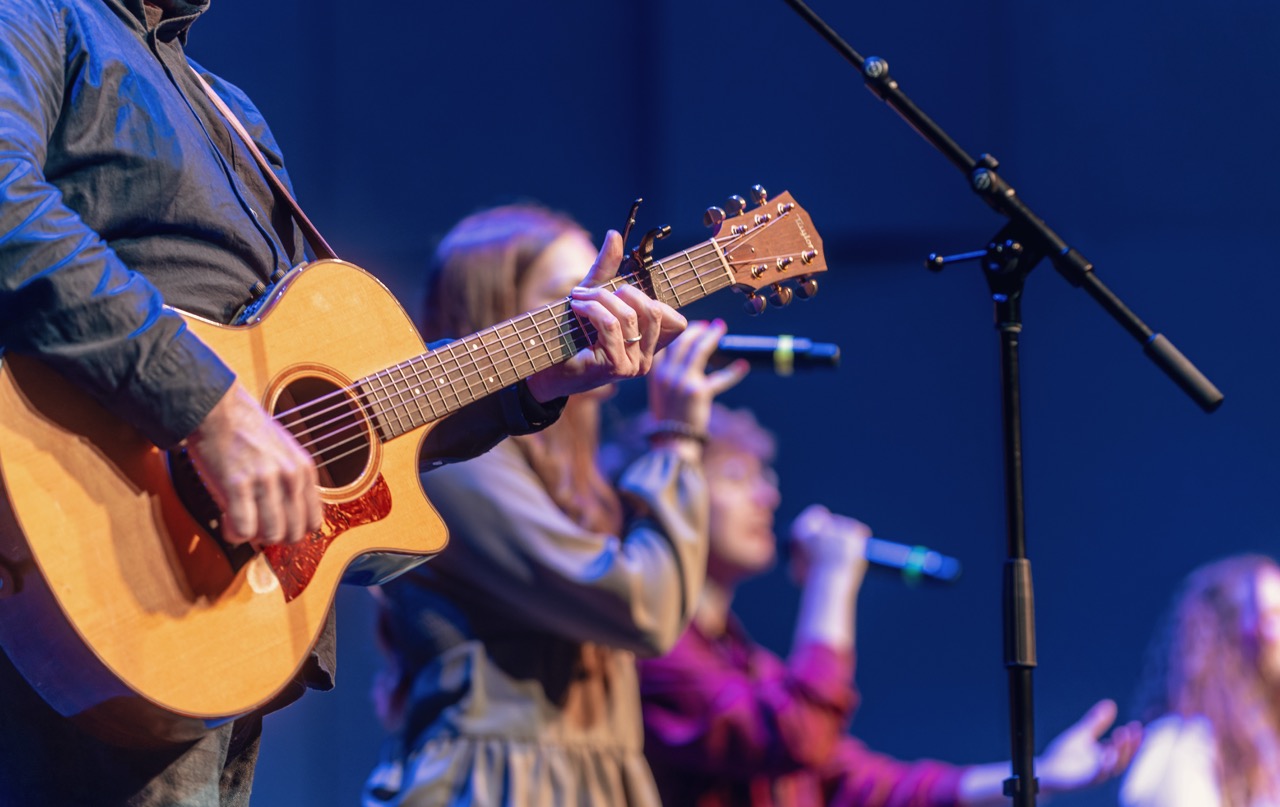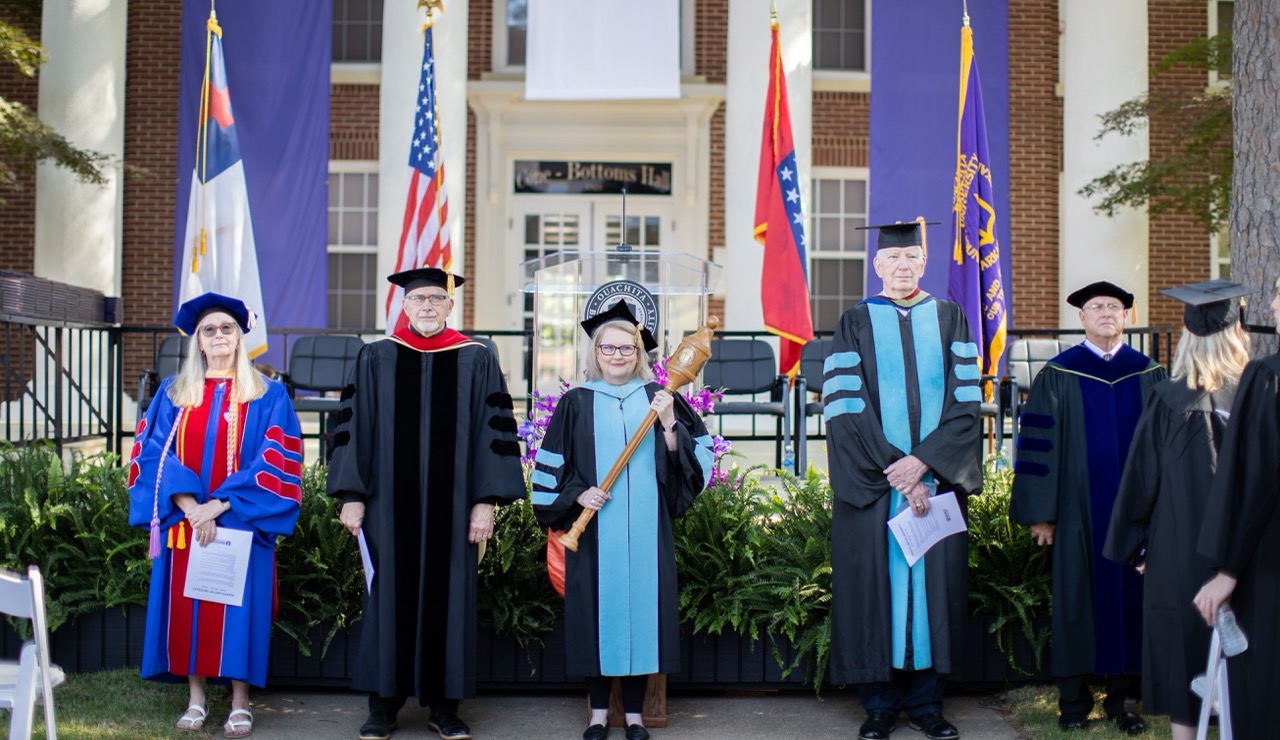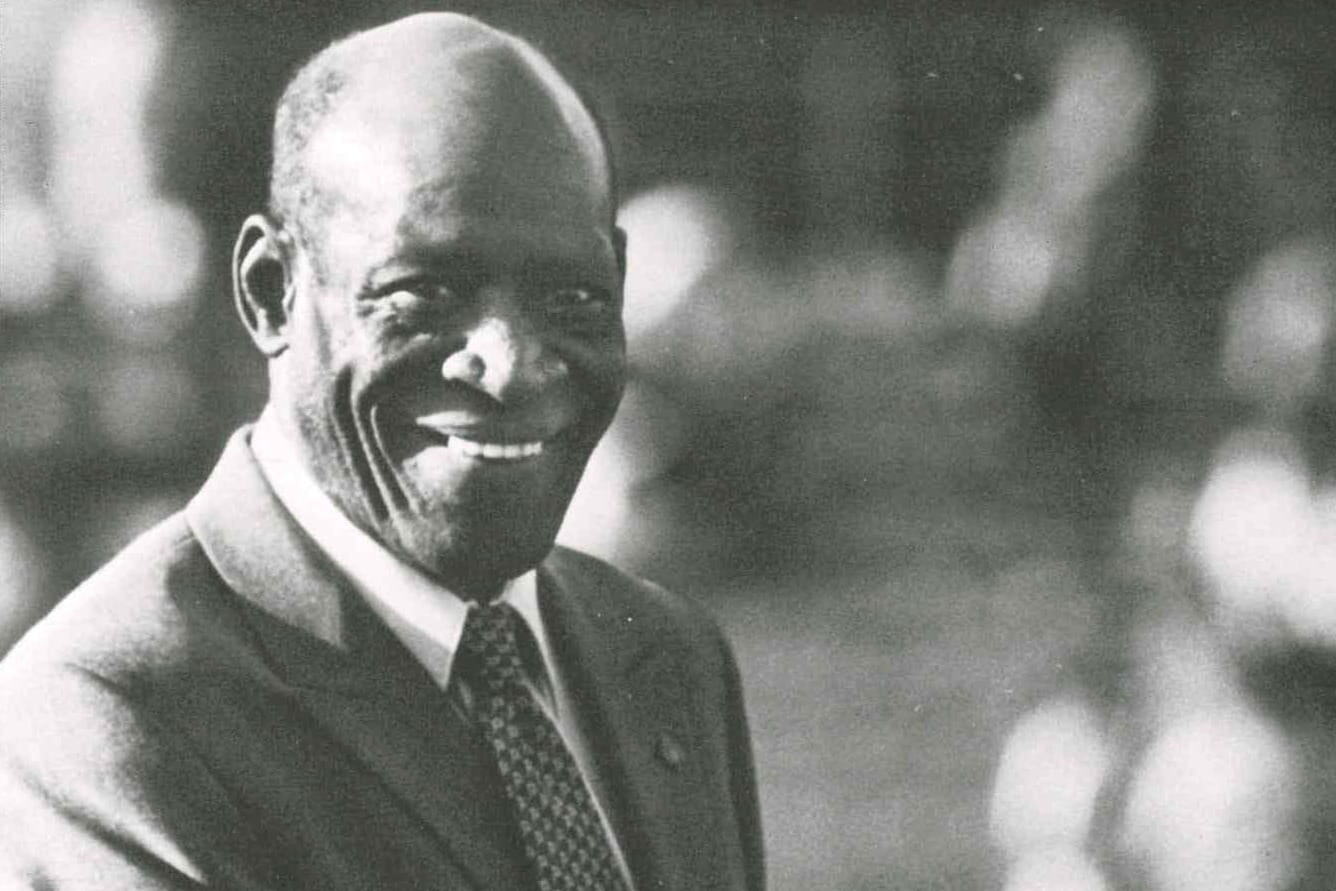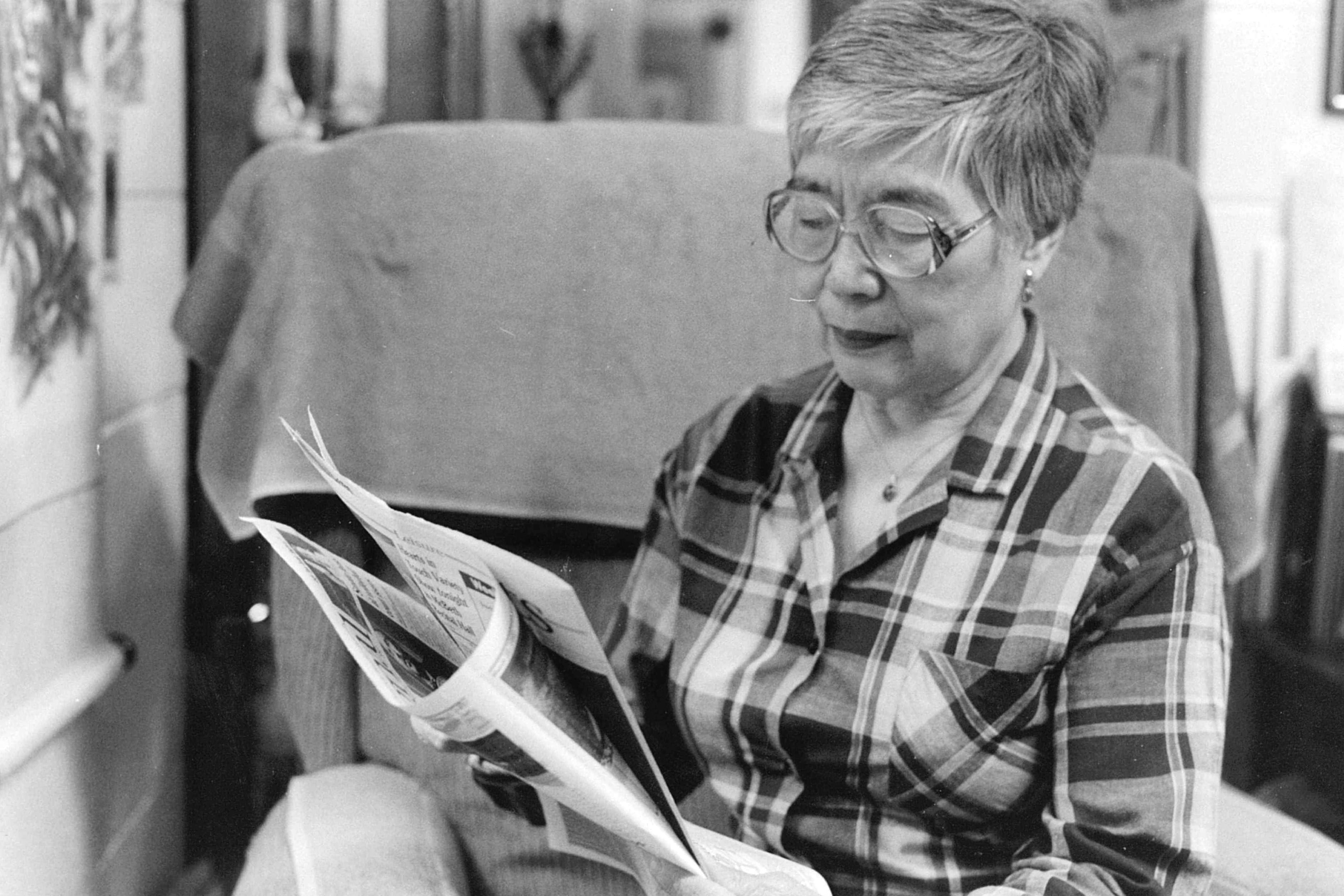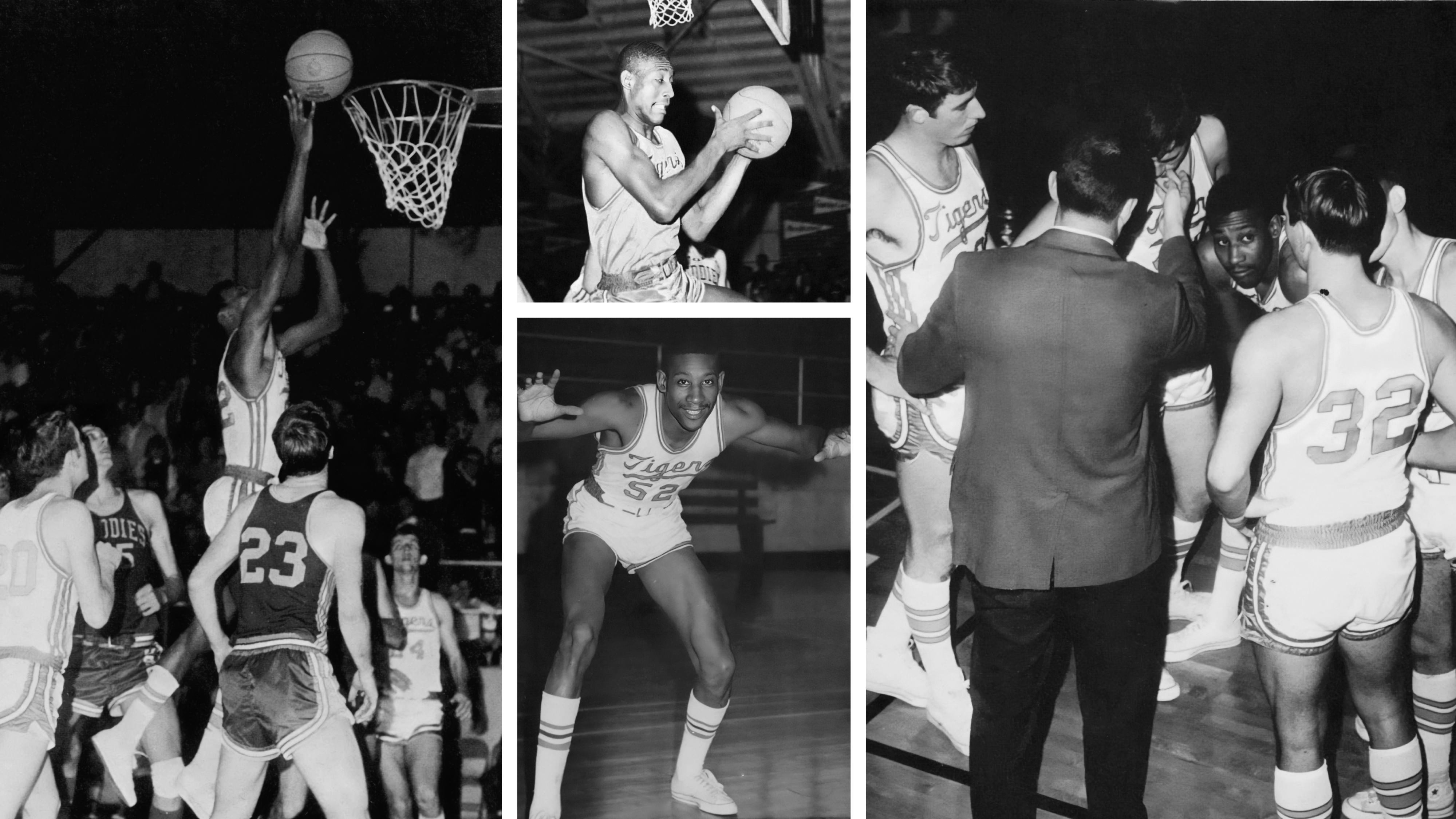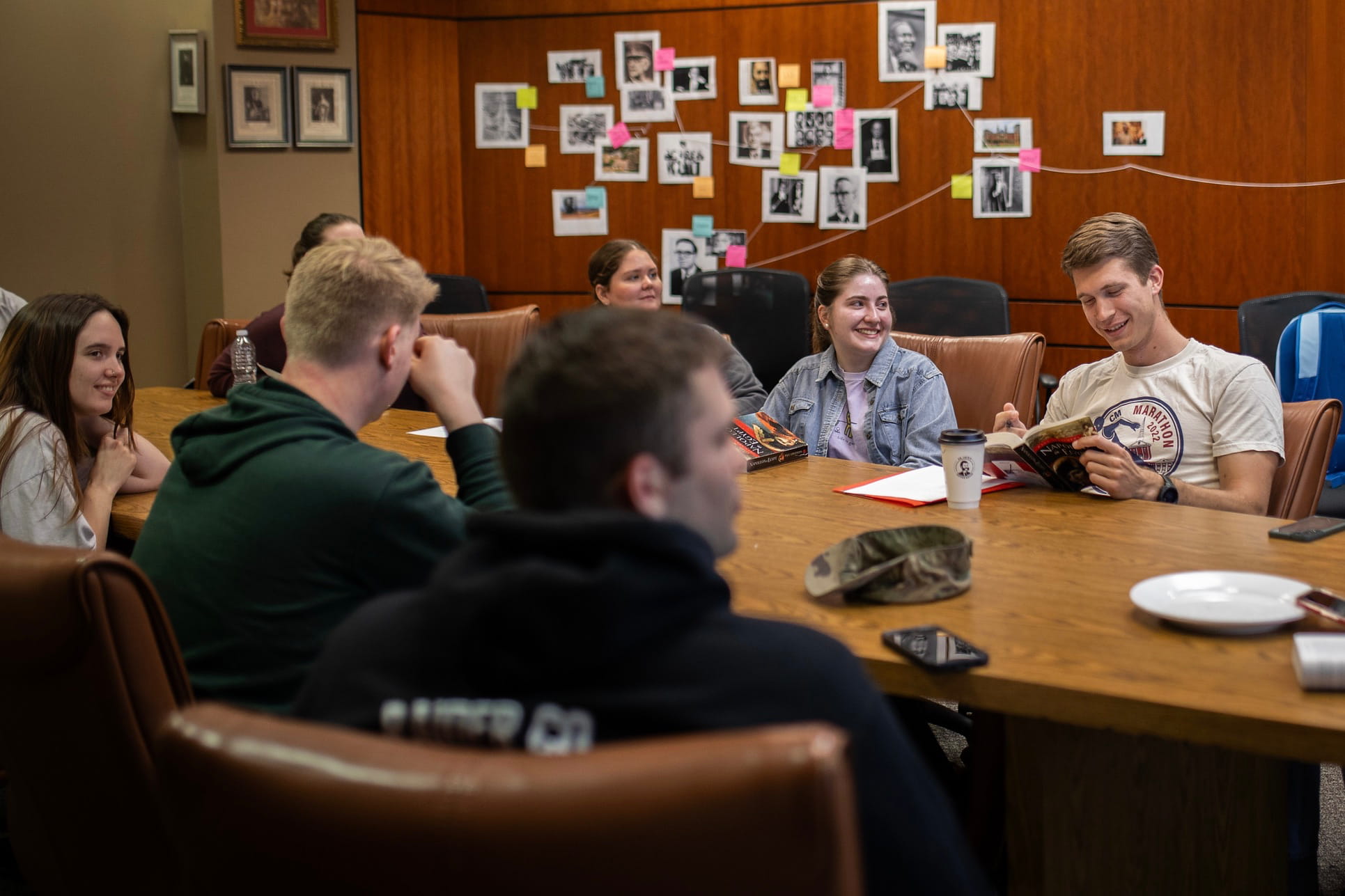Pushing forward
building momentum takes effort
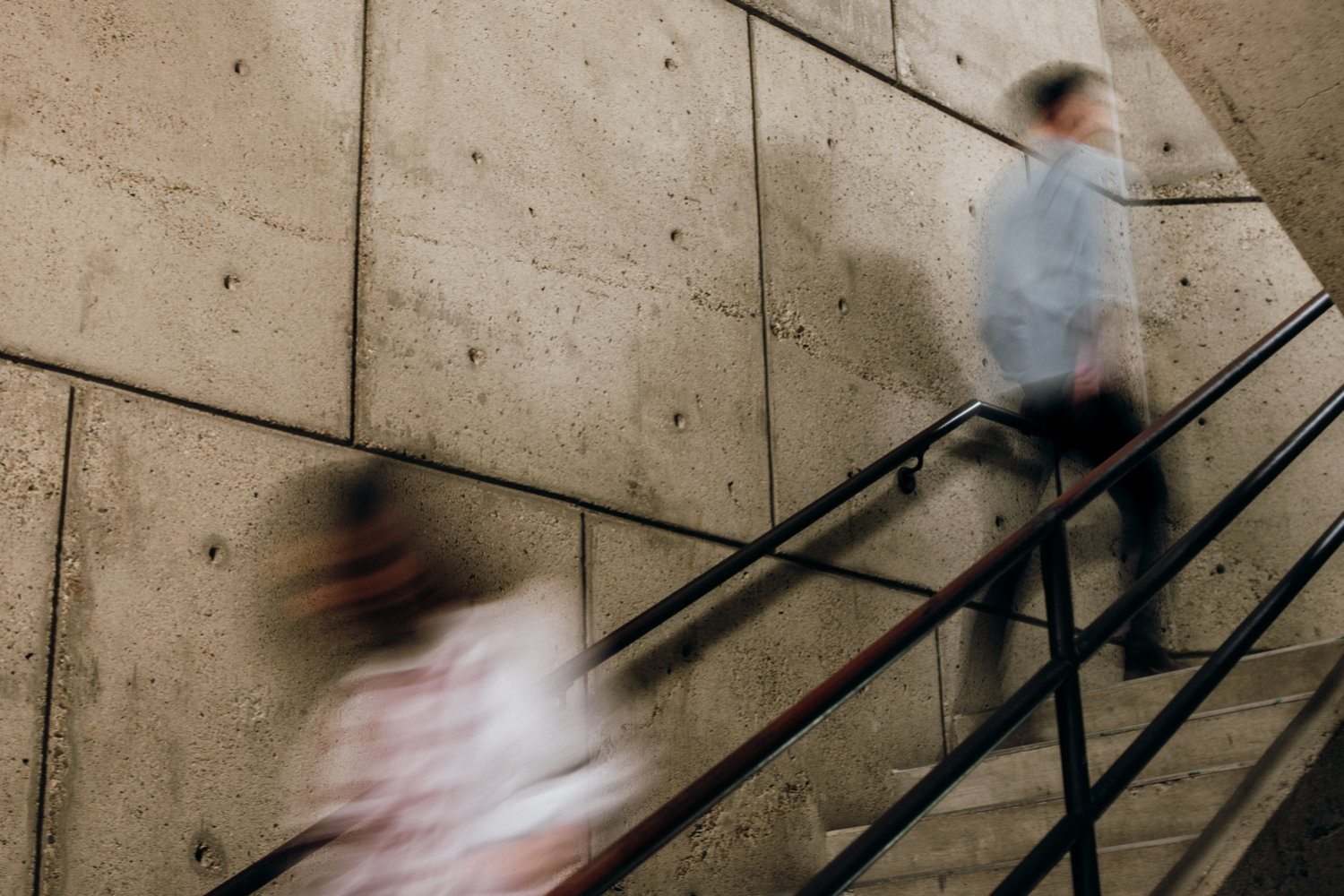 May 24, 2022
- Angela & Matt Douglass
May 24, 2022
- Angela & Matt DouglassAround August, we (Angela and Matt) decided that we should start running every day. We had always talked about doing it, but it was always easy to think of excuses. Eventually, though, we decided that if we just woke up 15 minutes earlier each day, we could roll out of bed, run a mile and be back home by our usual wake-up time.
Honestly, it was miserable at first. Every slight incline feels like a mountain when you’re out of shape. And, lately, it has been dark and cold. Even so, running has become easier over time. It is now less of a hassle, less of a task that we dread. A friend of ours claims that we’ll actually start to like running, but we’re not to that point yet. For now, at least, we have generated some positive momentum. We’re doing something that keeps us healthy, and the more we do it, the easier it becomes.
Momentum in Physics
The concept of momentum is borrowed from classical physics, where it is defined as the product of an object’s mass (how much matter it contains) and velocity (its speed and direction). A large object, like a horse, may have a lot of momentum even if it’s moving slowly; meanwhile, a duck, though much smaller, may have just as much momentum if it is moving very fast.
A fundamental principle of physics is the Law of Conservation of Momentum, which states that the total momentum of an object will remain constant, unless some outside force acts on it. Intuitively, we can think of momentum as how difficult it is to stop a moving object or to push it off course. Thought of in this way, to say that a horse and a duck have the same momentum would be to say that it would require the same amount of force to bring them to a stop.
In ideal circumstances like the deep void of space, an object would maintain its momentum indefinitely, continuing on its path forever. However, here on Earth there are always external forces. Obstacles, friction and air resistance constantly steal momentum and slow things to a halt. As a result, it always takes extra effort to keep things moving.
Personal Momentum
The same principles apply to our own lives. Momentum tends to be conserved in our values, emotions and choices—in a word, our character. Vices like greed, laziness and cowardice come naturally to us, because they satisfy our immediate, selfish desires. When we submit to these desires, destructive habits are quickly formed. Falling into temptation once makes it easier to fall again and again. Virtues like integrity, charity and humility, meanwhile, are often difficult to cultivate; their benefits can often feel paltry and remote.
In theory, acting virtuously builds momentum. Doing the right thing once makes it easier the next time and the next until, eventually, goodness becomes habitual, almost effortless. And through this process, by consistently and consciously choosing to do what is right, our values and motivations are transformed. To paraphrase the Stoics, virtue becomes its own reward—we value goodness and find pleasure in it, and our selfish desires fade. Of course, in real life things are not that easy. We face resistance of all sorts—from frustrations, temptations or threats to our comfort and security. The process of character formation is, at least in this life, a constant effort.
Momentum at Ouachita
Communities like Ouachita develop their own momentum through shared culture—the ways that the members treat each other, their shared values and common goals. Once a culture is established, it tends to reinforce itself, even as members come and go. In times of good fortune, maintaining a thriving community can seem effortless. But when challenges arise, as they always do, a community must work even harder to sustain and build its momentum.
These last two years have been difficult for everyone, and the Spring 2022 semester is providing yet more uncertainty and disruption thanks to COVID-19. At the beginning of the pandemic, the Ouachita community came together, taking precautions and making sacrifices that allowed us to continue in-person classes and campus life. This required huge effort from everyone on campus—a feat that wouldn’t be possible without the love everyone showed for each other.
Despite these challenges, Ouachita is actually gaining momentum in many areas, with the largest freshman class in decades, growing online and graduate programs, facility renovations and construction and the development of new academic programs.
Angela has seen this process first-hand at the departmental level. For several years, Ouachita has wanted to transform the current engineering physics degree into an ABET-accredited engineering program. The task seemed impossible at first, since it would require new faculty, workspace, investment and lots of paperwork. However, with positive feedback from an external reviewer and some follow-up research, the pieces began falling into place quickly. Before we knew it, we were designing new curriculum, converting an empty building near campus to our new engineering lab and posting an opening for a new engineering faculty member. Similar stories could be told all over Ouachita.
But momentum doesn’t come easily; in this life, we will never be in ideal circumstances. We will always face new challenges and hardships that threaten to slow us down, so we must constantly push forward to maintain and build momentum—whether that is resisting the urge to hit the snooze button on your run in the morning or rising to the challenge of something as far-reaching and complex as a pandemic. We are thankful for the community of students, faculty and staff who have pressed forward to make Ouachita what it is today. And we know that by God’s grace and continued effort, Ouachita will continue to thrive.
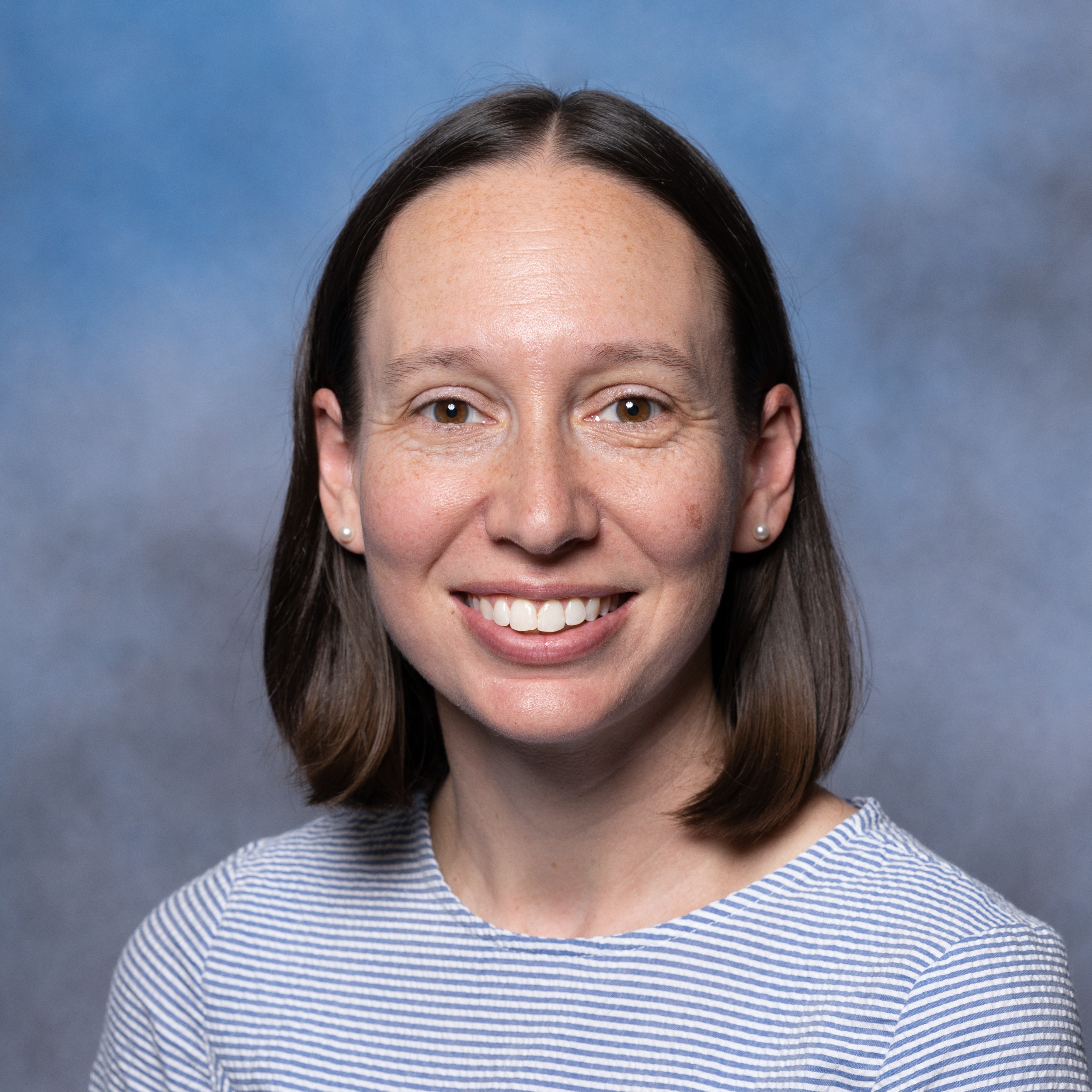
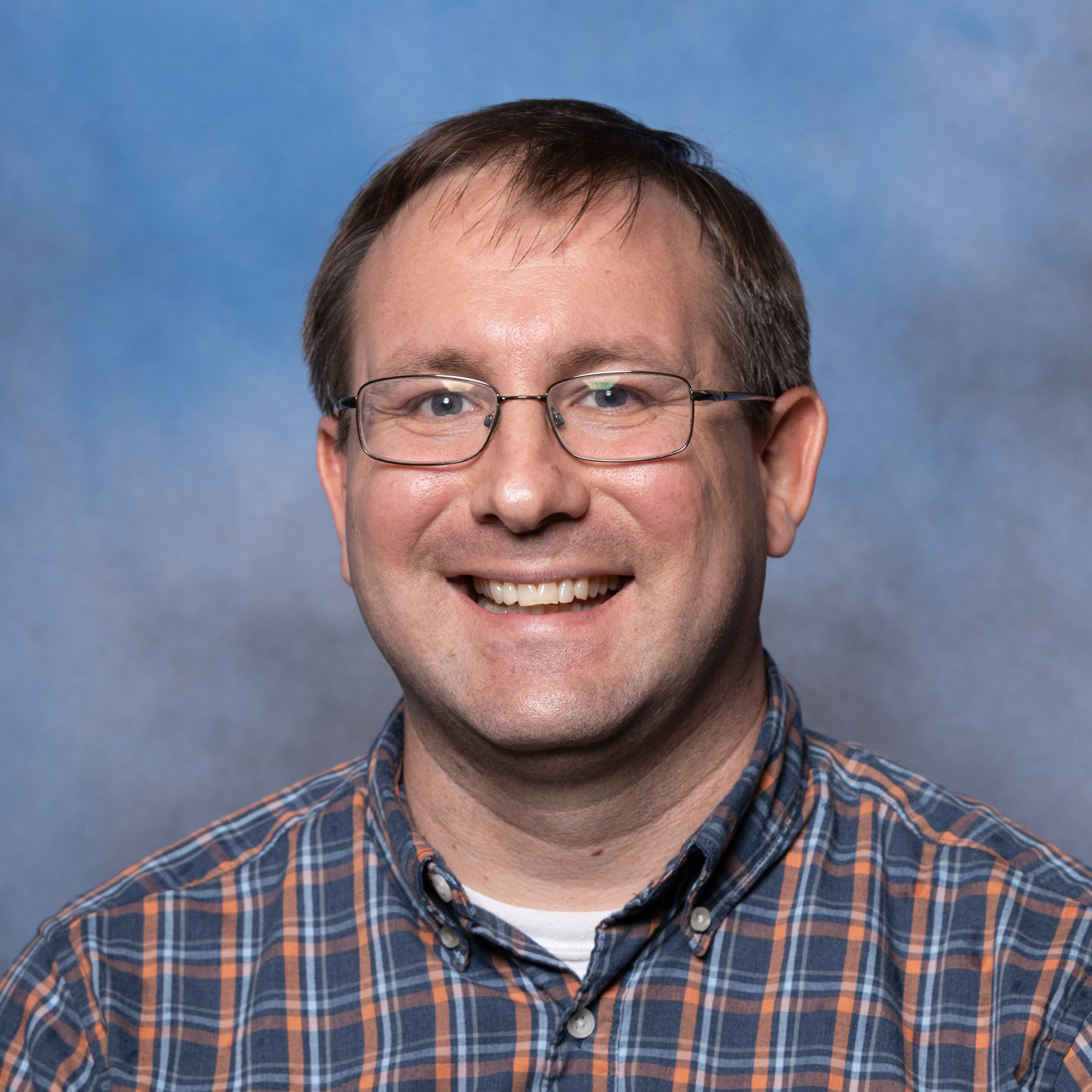 Dr. Angela Douglass, associate professor of physics, has served at Ouachita since
2012. Dr. Matt Douglass has served at Ouachita since 2015 and currently is assistant
professor of philosophy, institutional research analyst and assistant to the vice
president of academic affairs. They both earned their B.A. degrees from Southwestern
College and Ph.D. degrees at Baylor University, with Matt earning his M.A. degree
from Asbury Theological Seminary and Angela earning her M.S. degree from the University
of Kentucky.
Dr. Angela Douglass, associate professor of physics, has served at Ouachita since
2012. Dr. Matt Douglass has served at Ouachita since 2015 and currently is assistant
professor of philosophy, institutional research analyst and assistant to the vice
president of academic affairs. They both earned their B.A. degrees from Southwestern
College and Ph.D. degrees at Baylor University, with Matt earning his M.A. degree
from Asbury Theological Seminary and Angela earning her M.S. degree from the University
of Kentucky.
- Tags:
- Circle
You Also Might Like
Recent
Ouachita reports Spring '26 enrollment, led by 50% increase in graduate students
February 11, 2026